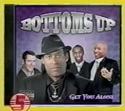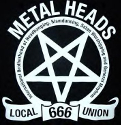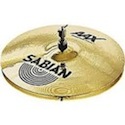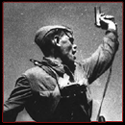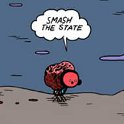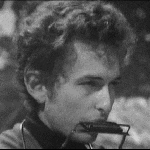|
Does the Privia PX-150 feel much different than the PX-130? I've played with the 130 in person and I like the action and the sound, but the 150 is the current model, and it looks like would actually be a bit cheaper online. I'm wondering if that's because the older one's better.  Edit: Found a great deal on the 130 on Craigslist, am a happy camper. zzyzx fucked around with this message at 23:49 on Feb 17, 2013 |
|
|
|

|
| # ? May 10, 2024 20:51 |
|
OneSizeFitsAll posted:Mozart stuff Thanks for the tips. You are definitely right about performances - they basically have to be flawless because any mistakes stick out like sore thumbs. Guess it will be sometime before I want to perform this (but not necessarily before I will :[)
|
|
|
|
I grew up with my sister's piano in the house and I've been playing triads and dicking around with the C major scale since I was around ten, but now I'm finally trying to teach myself how to actually play. I've got a ~$100 Casio CTK-573 that I need to pick up a sustain pedal for. Sustain pedals are pretty much universal if they run through a 1/4 inch jack, right? Is there a consensus on a cheap pedal? Obviously I won't be using it for performances or anything, so price is more of a concern right now. My second question isn't specific to this thread, but I'll probably be picking up a midi-to-usb cable at the same time just to have around. I see most on Amazon going for $5-7 while there are others that are less than a dollar. Is this a Monster Cable vs. Monoprice situation, or am I going to wish I spent the extra money on a better cable?
|
|
|
|
Lester Shy posted:I grew up with my sister's piano in the house and I've been playing triads and dicking around with the C major scale since I was around ten, but now I'm finally trying to teach myself how to actually play. I've got a ~$100 Casio CTK-573 that I need to pick up a sustain pedal for. Sustain pedals are pretty much universal if they run through a 1/4 inch jack, right? Is there a consensus on a cheap pedal? Obviously I won't be using it for performances or anything, so price is more of a concern right now. When it comes to digital to digital cables, you should pretty much always go for the cheapest option unless you need something ultra fancy (eg. waterproofing or something). You only need to worry about getting a super pricey, gold plated whatchamacallit cable when you're dealing with an analogue signal where the type of metal plating a connector / in the cable actually matters. For digital it's all the same. You'd only want to spend more if you were dealing with a situation where you needed insulation from a lot of electrical noise, like a concert setup or what have you. kedo fucked around with this message at 15:17 on Feb 22, 2013 |
|
|
|
My first performance of a Mozart piece in class (Viennese Sonatina No. 1 in C, 1st Mvt): http://tindeck.com/listen/gqko I'm pretty pleased with the overall sound, despite the mistake at the end and small inaccuracies. Sucks at the end but for me, no performance in this class is complete without a major mistake somewhere!
|
|
|
|
CowOnCrack posted:My first performance of a Mozart piece in class (Viennese Sonatina No. 1 in C, 1st Mvt): I liked it. Maybe a touch fast tempo wise, but then again your performing to an audience and I think everyone tends to speed up a bit in that situation. You controlled the piano well, About 3/4 of the way through I though you let the notes bleed together a bit too much but to be honest I'd be pleased with that performance.
|
|
|
|
Cast_No_Shadow posted:I liked it. Maybe a touch fast tempo wise, but then again your performing to an audience and I think everyone tends to speed up a bit in that situation. You controlled the piano well, About 3/4 of the way through I though you let the notes bleed together a bit too much but to be honest I'd be pleased with that performance. Thanks for the comments! Yea, in this case adrenaline took over and I found myself pushing the tempo. 3/4 of the way through is when I started reaching the areas I'm not as solid on (predictably since I've practiced the earlier parts more.) That's why having a recording is great - you can document all of your mistakes and why they happened - now I'll be sure to practice the end more thoroughly. I had some wrong notes learned at the very end of the piece that I had only discovered a couple of days before this class and had to correct quickly, so the mistake at the end is totally logical (instead of random) if not predictable. Wohoo, Mozart.
|
|
|
|
If a piece has a strong\good\best bit\most fun bit at the start or middle, learn it backwards. That is, a bar or a phrase at a time starting at the end. If its one that builds up to a cool ending, learn it forwards. Something my piano teacher has made me do, I see the logic, the cool or fun bit you'll learn that well just because you like it and like playing it. The start you'll learn because its the start of the piece and it really shows if that's off.
|
|
|
|
CowOnCrack posted:My first performance of a Mozart piece in class (Viennese Sonatina No. 1 in C, 1st Mvt): Had a couple of listens - your dynamics and articulation are good. Admittedly, not being familiar with the score I don't know if there's detail you haven't brought out, but you have a nice touch, and touch is a significant cornerstone of good technique. Don't worry about the mistakes - we all make them.
|
|
|
|
The church that I play organ for is looking at acquiring a mid-range keyboard, and I've been deputized to help find one. I played with a guy in college who owned a Casio Previa, and I played that. I thought it was a pretty decent keyboard at the time. Looking on eBay, it appears they go for $400-600. There's a lot of different models to choose from, which ones would you guys recommend?
|
|
|
|
I'm not a musician at all, but I'd like to be. Though I never got around to learning anything, the piano has always interested me. I finally have the funds to pick something up and I'm stuck between three models, all $500 with 88 weighted keys: Yamaha YPG 535 Casio Privia Px-130 Korg SP170s All seem to get great reviews. My plan to learn right now is to hook up the piano to garageband and start with the lessons it offers. I want to start off with self learning then get lessons when I'm ready.
|
|
|
|
Early lessons are not only about what keys to press, but also on how to press them. And posture and poo poo. It's easier to learn good technique when you don't have any bad habits yet. Anyway, the point is: don't wait too long taking lessons. A few in the beginning to get you started could be worth a lot.
|
|
|
|
The earlier you are in your piano playing journey, no matter the style or genre, the more important it is to have lessons. Seriously. Self learning first and lessons later is like Joe Officeworker deciding he'll build the foundations and brickwork, do the plumbing and electricity for his new house himself but hire a professional to do the loft (attic) conversion. A bit of a stretched analogy but the point is, he's going to have to undo half of what he has done and spend twice as long doing it again but doing it right. If you have designs on ever doing anything more than banging out some chords for show tunes\playing the start of Fur Elise to impress your mom you really want to get early lessons. Its just easier that way.
|
|
|
|
I just started watching a few lesson videos on youtube and I can already see what you guys mean about technique. I'll make it a priority to seek out real lessons. What should I be budgeting for lessons and at what interval should I be getting them? I live in Charleston, SC which isn't a small town but it's not really a city either. Also, how long should I except to take lessons? I don't know how far I want to go at this point but I'm pretty sure I'm not interested in being a career classic musician.
|
|
|
|
When I took lessons as a kid I think the rate was $20/half hour lesson, which might be a bit on the cheap side. I personally wouldn't spend more than $30 for a half hour. As for how often you should schedule them, how busy are you? If you can manage to practice several times each week I'd schedule weekly lessons, otherwise I'd go every other week. As for how many weeks of lessons you should take, that really depends on your level of commitment. Does anybody have recommendations for a good microphone to record a piano with? I've heard good things about Shure and Blue mics. Ideally, I'd like something less than $100.
|
|
|
|
Haggins posted:I just started watching a few lesson videos on youtube and I can already see what you guys mean about technique. I'll make it a priority to seek out real lessons. I pay $25 for half hour (but really it always lasts an hour neither of us care). He is however a concert pianist and truly fantastic teacher who happens to be taking time away from performing due to family issues, I got quite lucky. Interval wise I think something like a lesson for every 10-20 hours of practise is a good ballpark to start with, it 100% something you have to figure out with your teacher but you'll soon learn what feels right. I'd also say you'll need more earlier and less later. When you start everything is new and you wont know enough to know when something is wrong, everything feels as uncomfortable as everything else and you have no reference point. A good teacher will guide you through what you need to know and help you understand how to apply that to new things you come across. When you begin, most people will need their teacher to show them everything, each skill one by one, then after a while you pick it up and start to realise, ahhh, that fingering works for this, I learned this because it helps with these sort of pieces and so on and don't need that spoon feeding. Later still you move past technique based lessons (although odd things always crop up) and move into really focusing on playing a piece instead of hitting the right keys in the right order. Bare in mind the above is massively simplified and elements of everything ooze into everything else. As for how long you need lessons? That's up to you, playing an instrument can be something you do to chill and pick up once a week never taking any lessons and bashing out a few chords to something you spend a life-time studying intensely. If you start with a good teacher though, you'll make more progress in a year or two than in ten on your own and from there you have a starting point to take it wherever you want.
|
|
|
|
I only occasionally lurk this thread, but I thought I'd share this anecdote. If you want to take piano even slightly seriously, pick up this. Do what it says: 30 - 60 minutes a day. Practice for perfect evenness and control. It is, in my opinion, the single best thing you can do for your finger control and technique.
|
|
|
|
I dunno, I've seen posts on a few different forums saying that Hanon has led to injuries.
|
|
|
|
I think Hanon can be great, as long as it's used properly. Hanon is a book that is traditionally "the" book for piano technique, but it's come under criticism lately from authors such as C.C. Chang who wrote this excellent free guide to piano practice: http://www.pianofundamentals.com/ I find his arguments are interesting and important, but I don't personally think they are sufficient enough to show that Hanon is totally useless or harmful, as he suggests. Instead, I think it's all about how you use it, and also the learning style of the person playing. The downsides of Hanon are mainly that it doesn't teach you to play music and that it is very time consuming for something that is potentially the less than optimal way to learn technique (the optimal way perhaps being to just learn and play lots of music). Also, it's easy to see how Hanon doesn't doesn't develop universal technique but instead H.T. practice on very specific exercises that may not be applicable to music in general. However, the fundamental purpose of Hanon, which is to exercise and condition the fingers, still seems intact to me. Hanon isn't supposed to be the only thing you need for technique, but rather it's supposed to focus on a very specific problem - finger strength and eveness, which is a problem almost everyone has. For this, it does the job pretty well. The only criticism that may be valid against this is that striking the keys hard with fingers H.T. promotes the growth of slow muscles instead of fast ones. This may be true, but the impact of different exercises on muscle growth and the what is optimal for playing piano is physiology that is largely not understood. Certainly, countless pianists have played Hanon exercises to their benefit as far as dexterity, strength, and endurance, but most importantly - evenness. I think that hammering away the notes one way is a bad idea. I also think it's worth trying the exercises H.S. (hands separate) to mitigate some of the pitfalls C.C. Chang discusses. Also, in addition to the exercises, the Hanon book has a handy manual of all kinds of other techniques such as playing ascending and descending thirds, sixths, broken octaves, tremolos, etc. - a wealth of useful information on nearly all kinds of fixed situations (including fingerings). In the end, it's just another tool that can be misused. It's focused practice with a specific goal in mind. The question is whether it's the most optimal use of your time - if you have limited time, you might be better off greatly limiting this and other focused practice and just work on music which broadly develops all the relevant skills at once. But focused practice of any kind is invaluable and ends up being efficient when you can shore up your real weaknesses instead of raise the level of everything slowly (whereby certain skills stay perpetually behind.)
|
|
|
|
As I mentioned earlier in this thread, I've "played" the piano my whole life, i.e. beat out simple improvisations using mostly three note triads in the left hand and easy melodies in the right. Now I'm looking to correct the improper technique I've taught myself over the years and actually begin learning how to play the piano. My short term goal right now is to be able to play standards/classics in a cocktail/lounge/glorified elevator music style. I know it's cheesy and probably boring for anyone listening, but it's what I'm drawn to and something I feel I can handle at my current skill level. Eventually I'd love to be competent in "real" jazz piano, but I'm sure that's far in the future right now. Here's my problem: I would love to take lessons, but I can't find anyone around who meets my two criteria: 1) accepts adult students and 2) doesn't focus on classical music. So I'm wondering if anyone has experience with online jazz piano lessons or essential books that deal with beginning jazz technique and theory. I'm sort of hunting through youtube and finding videos that match my interests and skill level, but this is a really roundabout way to learn. I've found this guy's videos helpful and this one in particular is a good example of the style I'm going for: https://www.youtube.com/watch?v=OC2K7VAYd1A. Any advice is greatly appreciated.
|
|
|
|
Lester Shy posted:Jazz Find some people who play that style of music in your area, ask them. They might teach on the side or know someone who does. Its certainly your best bet if you want a real teacher. Can't really help with the rest sorry.
|
|
|
|
Cast_No_Shadow posted:I liked it. Maybe a touch fast tempo wise, but then again your performing to an audience and I think everyone tends to speed up a bit in that situation. You controlled the piano well, About 3/4 of the way through I though you let the notes bleed together a bit too much but to be honest I'd be pleased with that performance. I think the tempo was fine. Maybe it's the recording, but the left hand seems a bit too prominent for me. On the topic of Hanon: The book contains some good exercises especially for the 4th and 5th fingers. It's not the book yo want to use when you start learning obviously, but it comes in handy when you reach a certain level just like any other book that contains finger exercises. Pumprag fucked around with this message at 00:52 on Mar 1, 2013 |
|
|
|
Can anyone recommend some advanced piano technique books? I've read CC Chang's Fundamentals of Piano Practice and parts of On Piano Playing by Gyorgy Sandor, and plan to reread those, just to brush up on my fundamentals. Want to start seriously learning some classical pieces again, currently working my way through Chopin's Etude Op 25 No 2, and I want to make my practicing a little less sloppy and disorganized. Anyone have any books they can recommend?
|
|
|
|
Are you sure? That piece is very difficult. What exactly are you looking for? A book with some beautiful pieces with added explanations, or music theory?
|
|
|
|
Olive Lover posted:Are you sure? That piece is very difficult. It's nowhere near as hard as some of his other Etudes, I already have the first page and a half down in only a couple of days practicing. It doesn't sound exactly like what I want it to, but the technique is there. For reference, I learned his Op. 10 No. 4 about 6 years ago, and I played his Op. 10 No. 3 for an audition to music college. I'm looking for something similar to Sandor's or Chang's book, one that presents different methods of practicing, piano technique in so far as proper way of using your body and arm weight for playing things like octaves, arpeggios, or what not. I generally consider myself to be a pretty good pianist, but I've picked up a lot of bad habits over the years due to lazy practicing habits, which I want to slowly start to undo by just learning smaller pieces using as proper technique as possible, no shortcuts or anything. Not really looking for exercises, I've never believed in them, and they never really helped me out at all to be honest (besides arpeggios and scales, but I don't count those as exercises.) reversefungi fucked around with this message at 01:35 on Mar 2, 2013 |
|
|
|
Have you checked out the Cortot edition of the Etudes? It has tons of notes on alternate fingerings, and different exercises you can work through, for each Etude.
|
|
|
|
So one of my professors told me that I get an automatic pass in my piano accompaniment class if I can find which Chopin piece has 5/4 measures in it I think? I believe that's what he said. He said I'll never find it cause it's in some obscure piece. Any help goons?!
|
|
|
|
Annies Boobs posted:So one of my professors told me that I get an automatic pass in my piano accompaniment class if I can find which Chopin piece has 5/4 measures in it I think? I believe that's what he said. He said I'll never find it cause it's in some obscure piece. Third movement of Piano Sonata No. 1, Op. 4. Boom.
|
|
|
|
Ror posted:Third movement of Piano Sonata No. 1, Op. 4. Boom. Is that the only one? If so thanks a bunch!
|
|
|
|
Does anyone have any tips for loosening up? My entire loving back and arms are so tense all the time and I'm playing these pieces and obviously I can't go that fast in the prelude if my hands aren't loose. My professor is getting really frustrated at me because of this.
|
|
|
|
Haam posted:Does anyone have any tips for loosening up? My entire loving back and arms are so tense all the time and I'm playing these pieces and obviously I can't go that fast in the prelude if my hands aren't loose. This happened to me a lot when I was taking lessons, and after a while I'd get a horrible cramp in the small of my back. One thing that helped was to pay attention to my shoulders and elbows, making sure the shoulders are low and that there's some space between my elbows and my side. A lot of the time, if you aren't paying attention and it isn't second nature, your shoulders will start to creep back up and get tense, and I found that focusing on the shoulders helped everything else fall together.
|
|
|
|
I think I screwed up. I've got a dinky Casio CTK-573 and I picked up a Yamaha FC-5 sustain pedal, but the function of the pedal is the opposite of what it should be; with the pedal up, everything is sustained, with the pedal depressed, nothing is sustained. The pedal has no polarity switch. I've tried every combination of plugging in the pedal with the keyboard on, off, pedal up, pedal down that I can think of and it always works the same way. I don't know how to solder and don't feel comfortable enough taking apart small electronics to try to switch the polarity. Are there any settings in the keyboard I can try or am I out of luck here?
|
|
|
|
Hi piano thread, I'm an amateur composer who's finally taking the time to take piano lessons, and I need something to practice on. Unfortunately even an upright isn't an option, due to my living arrangement, so I'm shopping for a keyboard. I have a non-weighted keyboard used mostly as a midi controller, so I have some good, responsive soft synths, but I want something that pretty closely approximates the feel of a real piano. MIDI capability is a huge plus. A friend of mine has been pushing me to get a Yamaha Motif, but I wanted to find out of there's a better option out there. Any recommendations?
|
|
|
|
|
Haam posted:Does anyone have any tips for loosening up? My entire loving back and arms are so tense all the time and I'm playing these pieces and obviously I can't go that fast in the prelude if my hands aren't loose. I just played these (although not super well). For the prelude, You have to use the right technique in this one or you can't speed it up without tension. For the 32nd note figures, you have to use an extremely quick and relaxed rotating wrist motion, with the fingers only slightly stiff to hit the notes. Then it's done and on to the next one. Practice shifting to each new figure and shaping your hand appropriately mid flight. One way to get the hang of this is to treat each figure as an interval (it is a 2-note interval, the bottom note is just repeated twice). Play the intervals one after the other, finding the shape required for each. Then play them as notated, adding a lightning quick replay of the lower note which effectively creates the figure. This is a form of Chord Attack (see C.C. Chang's Fundamentals of Piano Practice). Since you are slowing down from infinite speed (playing the interval itself), you should be able to get the feel of a very quick figure - it sounds kind of bubbly! In the link you posted, you can hear it (blidip, blidap, etc.). Do it in slow-mo with ultra relaxation as well as doing very quick 'blidips'. The problem for me came on pianos with heavy action. As for the scale runs, break them into small sections and practice them in slow motion and relaxed. Then practice them in spurts (small groups very quickly). There are only a few spots that are difficult to get clean compared to the rest, focus on these. There's a lot to say about playing scales quickly and relaxed, and I'm not that good at it, so I'll leave that to someone else. Just remember that' it's like playing slow, except you throw your wrist around (but in a relaxed way). For the fugue, Practice super slow (always the key to everything in piano so can't be said enough!) and make sure you are voicing everything properly. Make sure you are playing every voice individually super solid and every voice pair super solid before putting the whole thing together. Be able to play every separate voice + voice pair hands separate at 150% the final H.T. tempo. In this case, around 60-80bpm for final tempo means 90-120 for H.S. Of course, the great thing about Bach is you don't have to play anywhere near any recommended tempo - these preludes and fugues sound great played almost any way. I played this fugue very slowly at my juries and it was well-received. The most fun is to be had bringing out one voice when one hand is playing two voices or the voice is split between hands. It is much easier to do this voicing and create a rich texture at slower tempos. To speed it up, use the more ordinary method of gradually ramping up the metronome. There's nothing that unusual here, except some difficult parts where one hand plays two voices, and a few jumps. Practice the jumps very slow and relaxed, in slow-mo The Matrix fashion. In some cases, the lower or upper voice plays repeating staccato notes while the other fingers play little figures. You need to have the right motions for these or they will fail miserably at high tempos. Finding them depends partly on your hand, but make sure you are your moving your elbow out and in, using your wrist appropriately, etc. Don't just rely on your fingers. The one in the middle of the piece in g minor gives me a lot of trouble, but I found that moving my elbow out and thus turning my hand away from the center of the keyboard a bit gave me a much more comfortable angle to play it. Here I had to move in and out of the keys quickly to voice the F#, and found it impossible to play entirely in the keys for the thirds/sixths/fourths etc. The coda is pretty challenging but not so bad if you use good fingering and every voice mastered prior to putting it together. I used a hybrid of the Alfred edition fingerings and ones suggested by my instructor. edit: Oh I also wanted to share this: http://tindeck.com/listen/ewty Not piano but, it's our chorale singing a composition by a student member of the group who is a composition major. It's entitled "O Vos Omnes". I think this fellow has a bright future. CowOnCrack fucked around with this message at 00:44 on Mar 10, 2013 |
|
|
|
Ror posted:Third movement of Piano Sonata No. 1, Op. 4. Boom. I looked at two different scores on imslp.org and neither have any 5/4 in the 3rd movement?
|
|
|
|
I'm finally going to take some lessons! I am really looking forward to being able to start learning actual technique, posture, etc. I've been playing for over two years now just through improving and jamming with some friends by ear. Basic theory knowledge has let me express myself but I've been feeling limited and unmotivated for a while so it is time to submit and break whatever horrible habits I have. There's a local little studio ran by a community college prof. that teaches guitar, piano, etc. and the piano instructor there has a pretty solid bio. I'm actually less concerned about feeling out the right teacher than I am about figuring out what I actually need from a teacher : /. This is why you take lessons as early as possible I guess.
|
|
|
|
Annies Boobs posted:I looked at two different scores on imslp.org and neither have any 5/4 in the 3rd movement? The very first complete one has it. http://conquest.imslp.info/files/imglnks/usimg/b/b8/IMSLP88219-PMLP02362-Chopin_Op_4_Haslinger_8147_First_Edition_1851.pdf Page number 14, the larghetto part. Your professor was right though, it really is tucked away in there. Ror fucked around with this message at 20:41 on Mar 10, 2013 |
|
|
|
Ror posted:The very first complete one has it. Lol, I was just dumb I didn't realize it was a 4 movement sonata. Haha, thank you! We'll see if my professor holds up to his word hahaha.
|
|
|
|
What do people use for sheet music? I'm constantly looking for this and that song and a easy, fast and reliable place to get them would be great.
|
|
|
|

|
| # ? May 10, 2024 20:51 |
|
Not sure how Anyone have any recommendations for short but somewhat flashy pieces? I'm thinking of anything along the lines of Etincelles by Moszkowski, for example.
|
|
|













